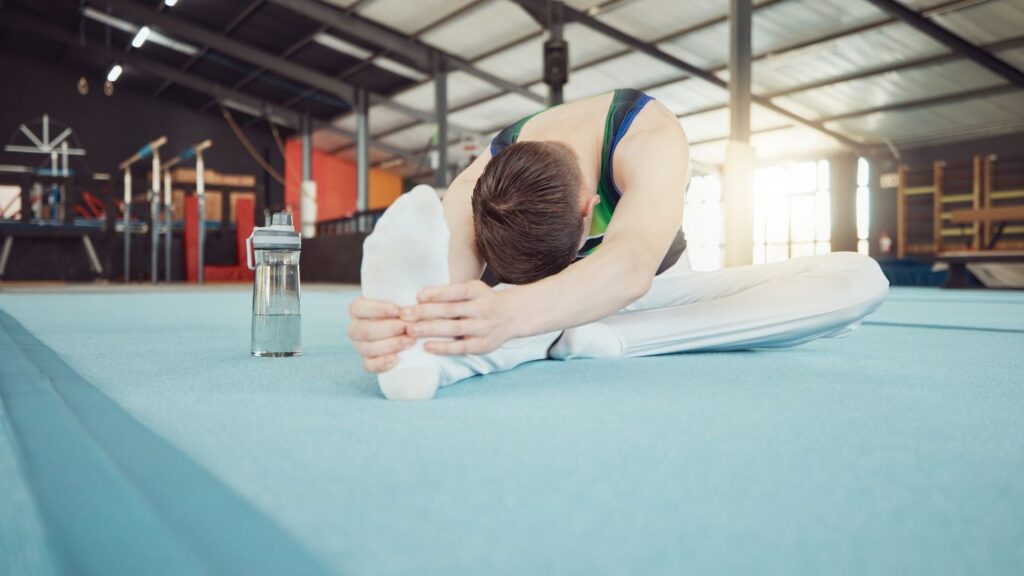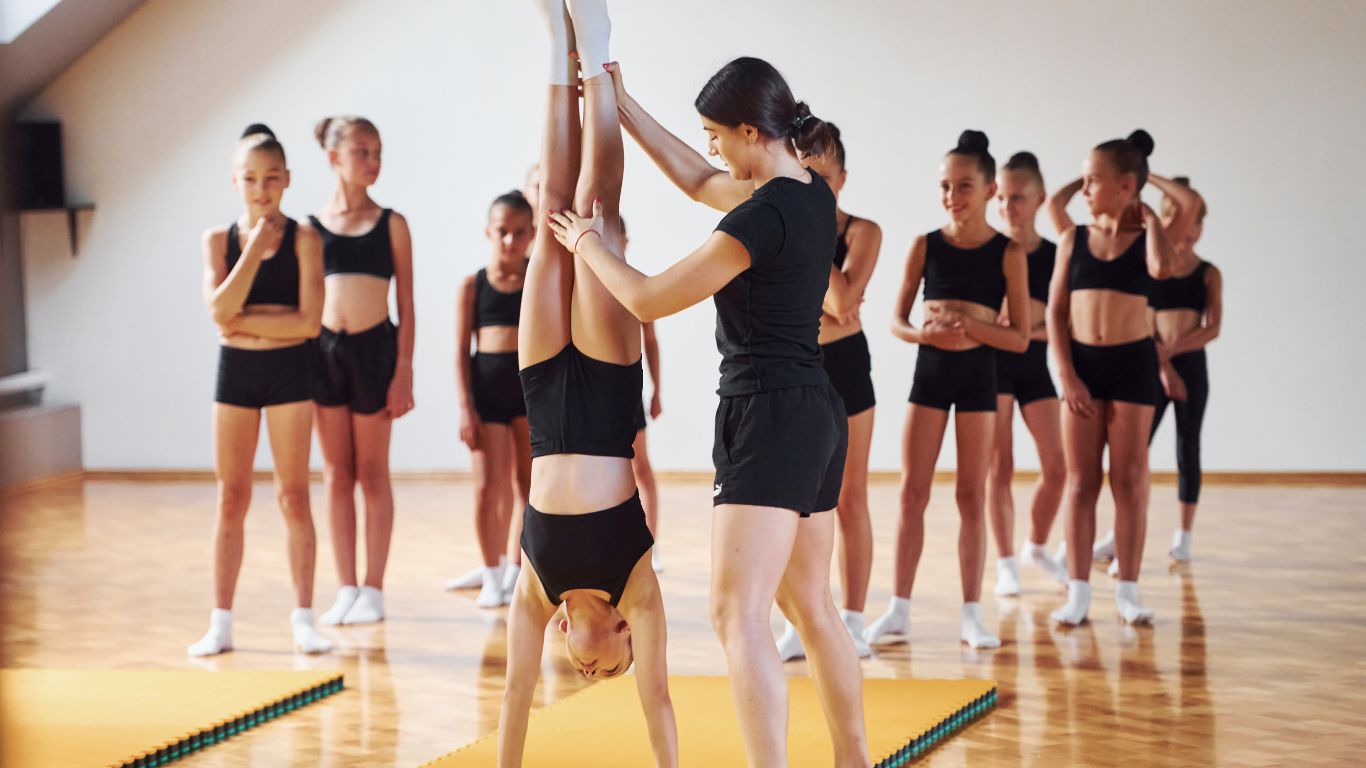Gymnastics is often celebrated for displaying physical skill, grace, and strength. However, beneath the surface lies a sport that demands unparalleled mental strength and resilience. While all sports come with their unique psychological challenges, gymnastics stands out due to the multifaceted mental struggles athletes face. This article delves into the intense mental focus required, the pressure to achieve perfection, the necessity for mental resilience, and the significant toll on mental health. Through personal experiences and expert insights, we will explore why gymnastics is the most demanding sport mentally.
The Intense Mental Focus Required
Gymnastics requires extraordinary mental focus to perform intricate routines, especially on apparatuses like the narrow beam or high bars.
Personal Experience: Overcoming Fear of the Beam

Consider the journey of a gymnast who experienced a severe fall from the balance beam. The fear that followed was palpable, creating a mental barrier that was as formidable as any physical injury. Overcoming this fear required intense mental conditioning, visualization techniques, and support from mental health professionals. This experience highlights the mental focus and resilience needed to continue performing at a high level despite past traumas.
Expert Insight
According to Dr. Jane Smith, a sports psychologist, “Gymnasts face unique mental challenges that require not just physical skill, but also an unparalleled level of mental resilience and focus. The ability to maintain concentration during high-pressure situations is critical.”
The Pressure to Achieve Perfection
Gymnastics is a sport where even the slightest mistake can lead to deductions from scores or serious injuries. The pressure to achieve perfection is immense and ever-present.
Personal Reflection: Post-Competition Mental Health Challenges
One gymnast recounts the emotional toll of striving for perfection, leading to a significant competition. Despite rigorous training and preparation, the fear of making mistakes loomed. After the competition, the exhaustion was both physical and mental, and the athlete struggled with post-competition blues, finding it challenging to regain motivation.
Expert Insight
Coach John Doe emphasizes, “In gymnastics, the pursuit of perfection is not just a saying, it’s a daily reality. The mental toll of this pursuit can be immense, often overshadowing the physical demands of the sport.”
Mental Resilience Needed to Overcome Fear and Self-Doubt
Fear and self-doubt are constant companions for many gymnasts. The sport requires athletes to push through these mental barriers, especially after facing potentially career-ending injuries.
Personal Story: Recovery from a Career-Threatening Injury

A gymnast who suffered a severe injury during practice shared their journey of recovery. The physical rehabilitation was challenging, but the mental resilience required was even more demanding. Overcoming the fear of re-injury and rebuilding confidence took months of cognitive training, support from coaches, and therapy sessions.
Expert Insight
Dr. Emily Brown, another sports psychologist, notes, “Gymnasts are often faced with the challenge of overcoming fear and self-doubt. This requires not just physical preparation, but also a deep understanding of their mental processes and strategies to combat these feelings.”
Constant Competition with Oneself and Others
Gymnastics is not just about competing against others; it’s also a constant battle with oneself. Pushing to one’s physical and emotional limits is part of the daily routine.
Personal Anecdote: Battling Self-Doubt and Pressure
One gymnast shared their struggle with self-doubt and the relentless pressure to be perfect. Despite external successes, the internal competition was fierce. The athlete constantly questioned their abilities, which took a significant emotional toll, leading to periods of burnout.
Expert Insight
Coach Samantha Lee explains, “We often forget that gymnasts are not just athletes, but also humans with emotional and mental needs. The fine line between mental toughness and burnout is something we constantly navigate in training.”
The Significant Toll on Mental Health
The demanding training schedules, strict diets, and weight of expectations from coaches, family, and fans can significantly impact a gymnast’s mental health.
Personal Reflection: Mental and Physical Exhaustion
Reflecting on the lead-up to a significant competition, one gymnast described the overwhelming mental and physical exhaustion experienced. The relentless training and pressure led to a breaking point, where the athlete had to step back to prioritize mental health.
Expert Insight
Dr. John Carter, a renowned sports psychologist, states, “The mental toughness developed by gymnasts can be a double-edged sword, leading to burnout and, in severe cases, lasting mental health issues. It’s crucial for the sport to recognize and address these challenges.”
FAQs
What makes gymnastics so mentally challenging?
Gymnastics combines the need for physical dexterity with intense mental focus. Athletes must perform complex routines under pressure, often confronting fears and mental barriers, which demands immense mental resilience and concentration.

How can gymnasts improve their mental toughness?
Improving mental toughness involves regular mental conditioning, such as visualization techniques, mindfulness practices, and working with sports psychologists. Consistent support from coaches and peers also plays a crucial role in developing resilience.
What are the common mental health issues faced by gymnasts?
Gymnasts often face anxiety, depression, and burnout due to the high demands of the sport. The pressure to achieve perfection and the fear of injury can significantly impact their mental well-being.
How do gymnasts cope with the fear of injuries?
Coping with the fear of injuries involves mental training, such as working through fears with visualization and problem-solving techniques and building confidence through gradual exposure and positive reinforcement from coaches.
Why is mental health support important for gymnasts?
Mental health support is vital because it helps athletes manage the psychological demands of the sport, promotes overall well-being, and prevents long-term mental health issues. Professional psychological support can aid in overcoming mental barriers and enhancing performance.
Conclusion
Gymnastics is undoubtedly one of the most mentally challenging sports. The intense mental focus required, the pressure to achieve perfection, the need for mental resilience, and the constant competition with oneself and others all contribute to the significant mental toll on gymnasts.
Supporting Mental Health in Gymnastics
The sport must prioritize mental health alongside physical training to better support gymnasts’ mental well-being. This includes providing access to mental health professionals, creating an environment where athletes can openly discuss their struggles, and implementing programs focused on mental resilience and stress management.
Encouragement for Broader Conversations
It’s time for a broader conversation on mental health in sports. Acknowledging athletes’ mental challenges and taking proactive steps to address them can lead to a healthier, more supportive environment for all.
Call to Action: Let’s work together to ensure that the mental health of gymnasts is given the attention and care it deserves. Please share your thoughts and experiences in the comments below, and let’s keep this meaningful conversation going.








